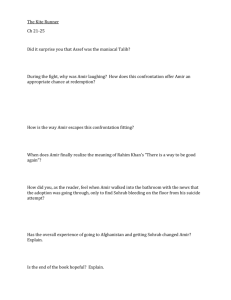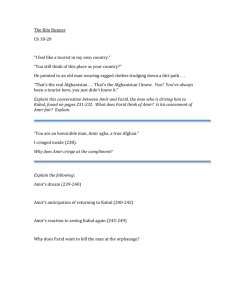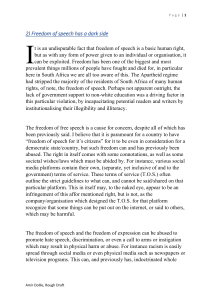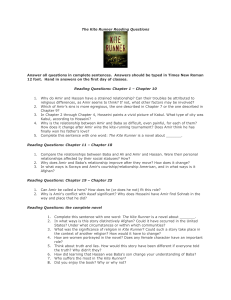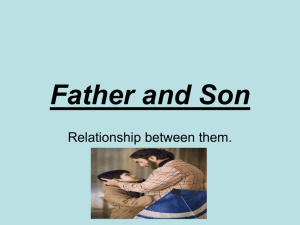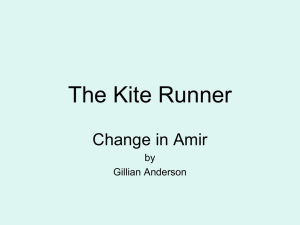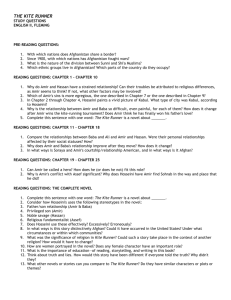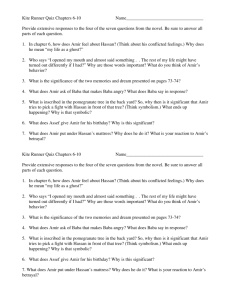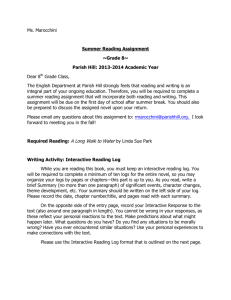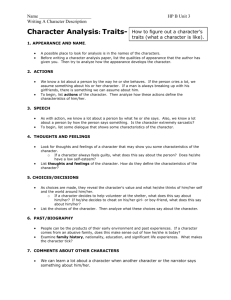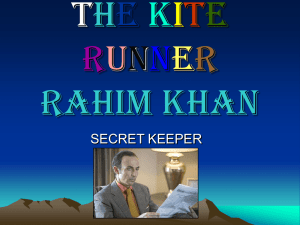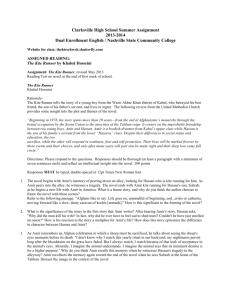Discussion questions for The Kite Runner Scott Purdy 1. The novel's
advertisement
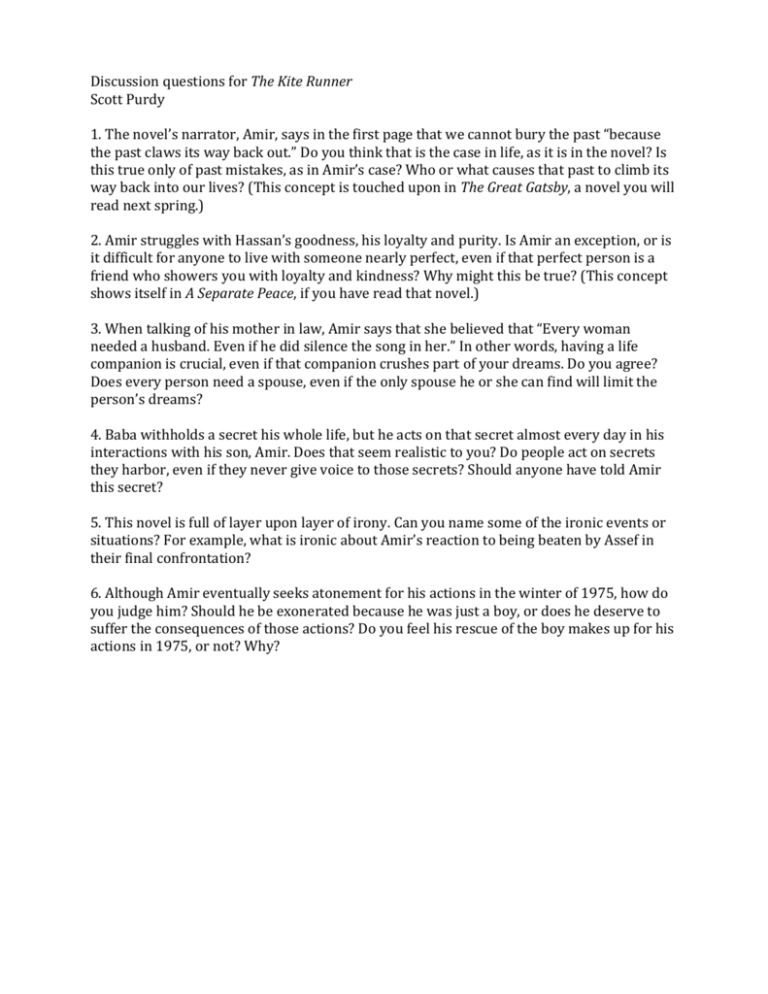
Discussion questions for The Kite Runner Scott Purdy 1. The novel’s narrator, Amir, says in the first page that we cannot bury the past “because the past claws its way back out.” Do you think that is the case in life, as it is in the novel? Is this true only of past mistakes, as in Amir’s case? Who or what causes that past to climb its way back into our lives? (This concept is touched upon in The Great Gatsby, a novel you will read next spring.) 2. Amir struggles with Hassan’s goodness, his loyalty and purity. Is Amir an exception, or is it difficult for anyone to live with someone nearly perfect, even if that perfect person is a friend who showers you with loyalty and kindness? Why might this be true? (This concept shows itself in A Separate Peace, if you have read that novel.) 3. When talking of his mother in law, Amir says that she believed that “Every woman needed a husband. Even if he did silence the song in her.” In other words, having a life companion is crucial, even if that companion crushes part of your dreams. Do you agree? Does every person need a spouse, even if the only spouse he or she can find will limit the person’s dreams? 4. Baba withholds a secret his whole life, but he acts on that secret almost every day in his interactions with his son, Amir. Does that seem realistic to you? Do people act on secrets they harbor, even if they never give voice to those secrets? Should anyone have told Amir this secret? 5. This novel is full of layer upon layer of irony. Can you name some of the ironic events or situations? For example, what is ironic about Amir’s reaction to being beaten by Assef in their final confrontation? 6. Although Amir eventually seeks atonement for his actions in the winter of 1975, how do you judge him? Should he be exonerated because he was just a boy, or does he deserve to suffer the consequences of those actions? Do you feel his rescue of the boy makes up for his actions in 1975, or not? Why?
